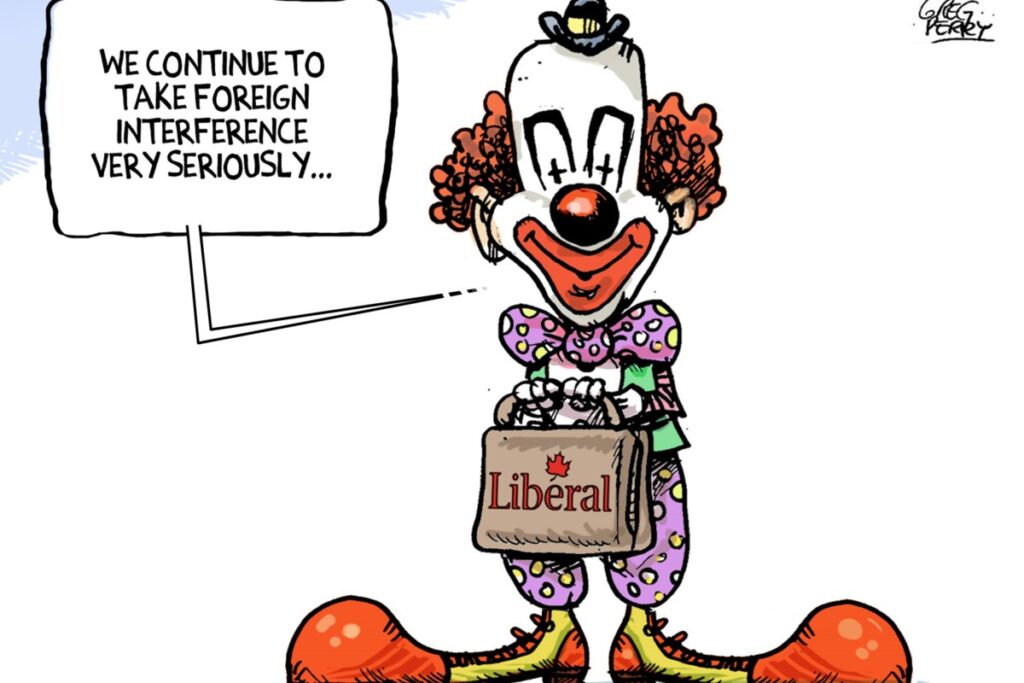“Canadians should be outraged that we have members of Parliament who would help a foreign power interfere in our domestic affairs for their own gain.”
The Canadian government has taken an untenable position on the current debate over foreign interference, fuelled by a recent report from the National Security Intelligence Parliamentary Committee (NSICOP).
The 84-page report was based on thousands of documents from various government departments and organisations involved in foreign affairs and found that some MPs currently sitting in Ottawa were “semi-knowingly or knowingly involved”. [emphasis theirs] “In attempts by foreign countries to interfere in our national politics” – this sentence is found on page 67, paragraph 164 of the report.
The report itself is a substantial read, and anyone with even the slightest interest in governance or the sovereign nation of Canada should read it from beginning to end. It thoroughly describes the tactics that define foreign interference, names the foreign powers interfering in Canada (China, India, Iran, Russia, Pakistan, and others redacted), lists what some members of Parliament have done to assist those foreign powers, makes eight findings, and makes six recommendations about what should be done about it.
The report goes into great detail about foreign interference as a national security threat, so Canadians should be outraged that we have members of Parliament who would help a foreign power meddle in our domestic affairs for their own gain.
The government has taken the untenable position of not publishing the names of MPs found to be supporting foreign forces for several reasons.
First, Canadian politicians are elected by Canadians to represent and act for and in the interests of Canadians. For their loyalty to be called into question would be a disaster for the current government.
Second, while the report states that some MPs were involved in these activities, it does not reveal the fact that others were not involved. However, by not naming the suspects, all MPs are subject to the same stigma and scrutiny.
Third, Canada does not exist in a vacuum and is an integral part of organizations such as the G7, G20, NATO, USMCA and the United Nations, which play important diplomatic, economic, intelligence and military roles. In all of these organizations, Canada has allies and adversaries. Continuing what its own intelligence agencies consider a “permissive environment” for foreign interference will diminish Canada’s standing on the world stage among allies and adversaries. To allies, Canada is an unreliable weak link, and to adversaries, Canada is a target.
Fourth, when combined with the continuing decline in trust in government institutions, refusing to commit to transparency regarding violations of public trust by the government's most public face further undermines the foundations of the government's own legitimacy. Trust cannot be rebuilt if there is a perception that the government is being compromised from within, much less when that is actually the case. Without a commitment to transparency, speculation will continue until something breaks.
Fifth, not taking action and not publicly prosecuting politicians involved in questionable foreign activities sends a signal to guilty parties that they can get away with it, and it also sends a signal to other parties that they can get away with it.
Finally, for the government itself, this story is likely to continue for a long time, possibly even until the next elections. There is not much the government's political opponents can do to add fuel to the fire and take advantage of the situation. They have already lost track of the problem and now it is running out of steam, way beyond them.
First of all, let us start by naming the MPs involved, whatever party they belong to. If they were “unconscious” there are many lessons to be learned, if they were “conscious” there should be appropriate punishment.



